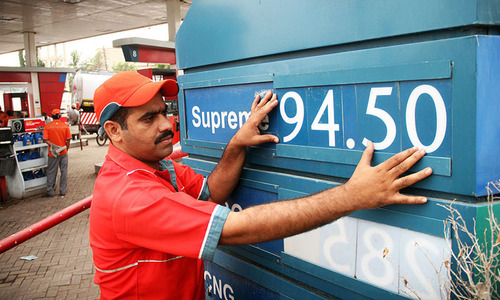ISLAMABAD: Based on legal and constitutional issues raised by Sindh and Khyber Pakhtunkhwa, Oil and Gas Regulatory Authority (Ogra) has expressed its inability to approve import and pricing of liquefied natural gas (LNG) unless the government amends existing laws and puts in place legally trustworthy mechanism for its supply chain.
In its latest communication to the federal government, Ogra has also pointed out that it could not clear the LNG pricing and the 15-year agreement worth $16 billion for its supply from Qatar after these issues had been pointed out in public hearings.
“In view of above, MP&NR (ministry of petroleum and natural resources) is requested to provide its comments in the matter as well as convey necessary approvals by the competent forums as required under the constitution of Pakistan and amend Ogra’s legal framework enabling it to proceed further in the matter,” Ogra said.
The regulator said it had determined provisional price of LNG on October 7 last year in pursuance of the federal government decisions but this price was challenged for review by main stakeholders — PSO, SSGCL and SNGPL.
Therefore, it held public hearings in Lahore and Karachi and listened to views of the provincial governments, industrial bodies and associations, general consumers and investors.
Ogra said that the interveners including representatives from the governments of Sindh and KP and former member energy of planning commission Shahid Sattar contended that almost all the decision related to LNG/RLNG framework, including RLNG pricing components have been approved at the level of ECC of the cabinet.
In the light of 18th Amendment, the approval of federal government under Article 90(1) of the Constitution of Pakistan implies approval of prime minister or the federal cabinet and not ECC only. Accordingly, all the decisions taken by ECC of the cabinet in this respect needed to be presented before the federal government as defined in constitution, for ratification and approval.
Provincial government of Sindh and KP also pointed out that LNG once re-gasified was natural gas and was subject matter of the Council of Common Interest (CCI).
“It is not an imported item. Even if for the sake of arguments, it is accepted as imported item, then the commingling of RLNG with locally produced gas at SSGCL terminal Karachi and swapping of indigenous gas from the wells of Khairpur, Dadu and Dera Bugti was unconstitutional, illegal and breach of trust. Therefore, all such matter be placed before CCI”.
Ogra said the RLNG in no way was ‘petrol’. Therefore, notification of federal government terming it petroleum product is ultra-vires and thus declared to be null void.
In view of the same, all the matters related to RLNG should be under the existing natural gas framework and Ogra ordinance and necessary amendments must be brought to its legal framework on immediate basis.
By nominating PSO as LNG buyer, the competition laws have been violated, creating monopoly on crude oil and gas imports.
Regarding levelised tolling tariff, federal government has issued policy guidelines whereby cabinet has approved $0.66 per mmBtu.
Federal government has, however, not approved the LNG Supply Agreement (LSA).
“Therefore, Ogra is not competent to deviate from the decision of the cabinet in the matter of payment of terminal charges and allow more than $0.66 per mmBtu,” Ogra wrote.
On top of that, the government always offered incentives while introducing any new commodity or business line in the form of tax exemptions and other fiscal measures. Contrary to this, consumers of RLNG in the initial year were being burdened with higher terminal charges as per LSA.
Even otherwise, LSA was a contractual arrangement between two commercial entities and cannot be assumed as binding on Ogra.
“Federal government must look into earlier offers and negotiations held in 2009 while opting for current high price of LNG.”
Moreover, LNG was emerging as a main line of business in energy factor world over. Accordingly, LNG rates were continuously decreasing. In this horizon, long-term price contracts were not advisable and should be reviewed and re-negotiated after the term of five years.
It has also been pointed out that current arrangement of LNG spot purchases and supplies to public-sector gas utilities in contradiction of Article 3.2 (c) of LNG Policy, 2011. Also, Article 6.3 (c) of LNG policy, 2011 was not being followed.
The regulator said the additional capacity available at transmission and distribution network of gas companies should be operated under third-party agreements and RLNG price deregulation regime.
Published in Dawn, January 23rd, 2016














































